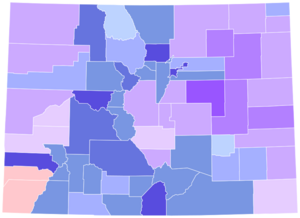Constitution Party (United States) facts for kids
Quick facts for kids
Constitution Party
|
|
|---|---|
 |
|
| Chairman | Justin Magill |
| Founded | 1990 (as U.S. Taxpayers' Party) 1999 (as Constitution Party) |
| Split from | Republican Party |
| Headquarters | 408 West Chestnut Street, Lancaster, Pennsylvania 17603 |
| Membership (2021) | |
| Ideology |
|
| Political position | Far-right |
| Colors | Red, white and blue (national colors) Purple (de facto) |
| Senate |
0 / 100
|
| House of Representatives |
0 / 435
|
| State Governors |
0 / 50
|
| State upper chambers |
0 / 1,972
|
| State lower chambers |
0 / 5,411
|
| Other elected offices | 25 (June 2025)[update] |
The Constitution Party is a political party in the United States. It was first named the U.S. Taxpayers' Party when it started in 1990. The party believes the U.S. government should strictly follow the United States Constitution. They think the Constitution should be understood exactly as the writers first meant it. This is a view called originalism.
The party's ideas are also shaped by the Bible, the Declaration of Independence, and the Bill of Rights. It is known for its very conservative views on social and money-related issues.
The party was started by Howard Phillips. He was a conservative activist who was unhappy with President George H. W. Bush. Bush had promised not to create new taxes but later did. Phillips was the party's first presidential candidate. Since then, the party has chosen other candidates for president, including Michael Peroutka (2004), Chuck Baldwin (2008), Virgil Goode (2012), and Randall Terry (2024).
While the party has not won any national elections, it has had some success at the state and local levels. In 2006, Rick Jore became the first party member to be elected to a state legislature in Montana. As of June 2024, the party has 28 members in local government offices, like city councils.
Contents
History of the Party
How the Party Began
In the 1988 election, George H. W. Bush famously said, "read my lips: no new taxes". But as president, he broke that promise. This led a conservative activist named Howard Phillips to create a new political party. He called it the U.S. Taxpayers' Party.
Phillips used his organization, the U.S. Taxpayers Alliance, to find people who would support the new party. He wanted to build a party for people who felt the Republican and Democratic parties were not following the Constitution.
The Early Years: 1990s
The new party quickly got involved in elections. In the 1992 presidential election, the party hoped to nominate a famous politician like Pat Buchanan or Ross Perot, but they were not successful. Instead, Howard Phillips became the party's first presidential candidate. He ran again in 1996.
In 1999, the party officially changed its name. After a vote at the national convention, the U.S. Taxpayers' Party became the Constitution Party. This new name better reflected the party's main goal: to follow the U.S. Constitution.
Growth and Changes: 2000s
In 2000, Rick Jore, a Republican in the Montana House of Representatives, switched to the Constitution Party. After a few tries, he won an election in 2006. This made him the first Constitution Party member to win a seat in a state legislature.
In 2002, Greg Moeller became the first party member to win a local election. He was elected as a township trustee in Iowa. These small wins were important steps for the party.
During the 2008 election, the party nominated Chuck Baldwin for president. However, some state parties disagreed with this choice. For example, the Constitution Party of Montana put Ron Paul on the ballot instead, even though Paul later asked for his name to be removed.
The Party in the 2010s
In 2010, the party had a big success in Colorado. Their candidate for governor, Tom Tancredo, won over 36% of the vote. This was enough to give the party "major party status" in Colorado for a time. This meant the party had more influence in state politics.
In the 2012 election, the party nominated Virgil Goode. He was a former Congressman who had been a Democrat, an independent, and a Republican. He was the first presidential candidate for the party who had served in the U.S. Congress.
Recent Years: 2020s
In the 2020 election, the party nominated businessman Don Blankenship for president. However, not all state parties agreed. Some chose to support a different candidate.
For the 2024 election, the party nominated activist Randall Terry. Again, some state parties, like those in Nevada and Utah, chose to support a different candidate, Joel Skousen. This shows that there can be disagreements within the party.
What the Party Believes
A political party's beliefs are called its "platform." The Constitution Party's platform is based on its understanding of the Constitution and the Bible.
Government and the Constitution
The party believes the U.S. government has become too powerful. They want to reduce its size and influence. They support states' rights, which means giving more power back to the individual states.
- Taxes: The party wants to repeal the Sixteenth Amendment, which allows the federal government to collect income tax. They believe the government should be funded by tariffs (taxes on imported goods) and excise taxes (taxes on specific goods).
- Money: They support returning to the gold standard. This means that the value of U.S. money would be backed by a real amount of gold held by the government.
- Elections: The party supports keeping the Electoral College for presidential elections. They are against a national popular vote system.
Social Issues
The party has strong conservative views on social topics. These views are often based on their religious beliefs.
- Family: The party believes that marriage is a union between one man and one woman.
- Language: They support making English the official language for all government business.
- Religion: The party believes the United States was founded as a republic under God. They think the country's laws should be based on biblical principles.
Foreign Policy and Immigration
The party supports a foreign policy of non-interventionism. This means they believe the U.S. should not get involved in the affairs of other countries.
- International Groups: They want the U.S. to leave organizations like the United Nations and NATO.
- Trade: They support protectionism, which means using tariffs to protect American businesses from foreign competition.
- Immigration: The party calls for stricter control of U.S. borders. They oppose giving citizenship to children born in the U.S. to parents who are not legal residents. They also want to use the military to help enforce immigration laws.
Notable Members and Elections
Over the years, several politicians who were once Republicans have joined the Constitution Party. These include Virgil Goode and Tom Tancredo.
The party has run candidates in many elections for president, the Senate, and the House of Representatives. While they have not won these major races, their candidates sometimes get a noticeable number of votes. For example, in 2010, the party's candidate for the U.S. Senate in Utah, Scott Bradley, received 5.7% of the vote.
The party's presence in elections can sometimes affect the results for the two major parties. Because the Constitution Party's views are very conservative, it often attracts voters who might otherwise vote for the Republican Party.
Electoral Results
Presidential Elections
| Year | Presidential nominee | Home state | Vice presidential nominee | Home state | Votes | Notes |
|---|---|---|---|---|---|---|
| 1992 | 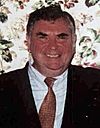 Howard Phillips |
Albion W. Knight |
43,369 (nil%) 0 EV (#7) |
|||
| 1996 |  Howard Phillips |
Herbert Titus | 184,656 (0.2%) 0 EV (#6) |
|||
| 2000 |  Howard Phillips |
Curtis Frazier | 98,020 (0.1%) 0 EV (#6) |
|||
| 2004 | Michael Peroutka |  Chuck Baldwin |
143,630 (0.1%) 0 EV (#5) |
|||
| 2008 |  Chuck Baldwin |
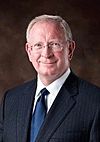 Darrell Castle |
199,750 (0.2%) 0 EV (#5) |
|||
| 2012 | 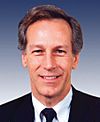 Virgil Goode |
Jim Clymer | 122,388 (0.1%) 0 EV (#5) |
|||
| 2016 |  Darrell Castle |
Scott Bradley | 203,069 (0.2%) 0 EV (#6) |
|||
| 2020 | 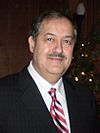 Don Blankenship |
William Mohr |
60,023 (nil%) 0 EV (#8) |
|||
| 2024 | 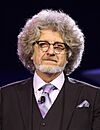 Randall Terry |
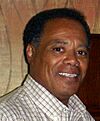 Stephen Broden |
41,107 (nil%) 0 EV (#8) |
See also
 In Spanish: Partido de la Constitución para niños
In Spanish: Partido de la Constitución para niños
- Constitution Party National Convention
- Electoral history of the Constitution Party
- List of political parties in the United States
- Paleoconservatism
- Theoconservatism
 | Anna J. Cooper |
 | Mary McLeod Bethune |
 | Lillie Mae Bradford |


